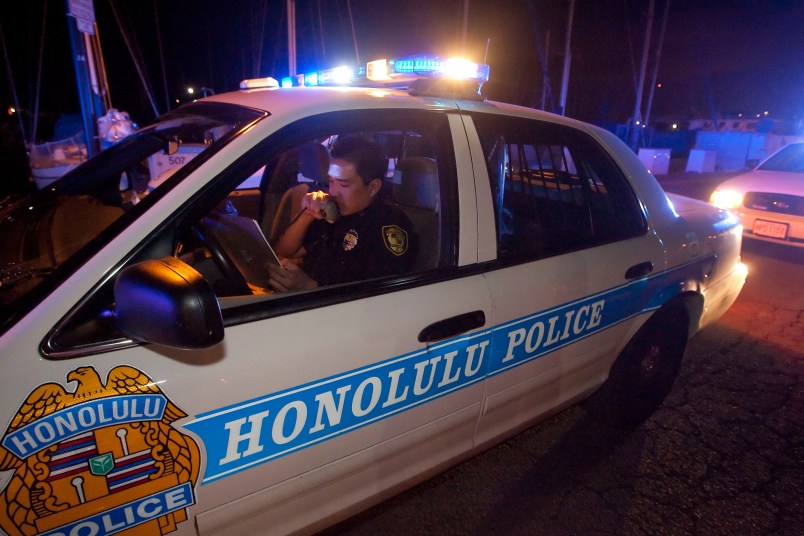HONOLULU (AP) — A key Hawaii lawmaker considering an anti-prostitution bill says he and Honolulu police have agreed to get rid of a longtime exemption that allowed officers to have sex with prostitutes.
State Sen. Clayton Hee, head of the Senate Judiciary Committee, said he and police agreed at a meeting Tuesday that the exemption ran contrary to popular opinion.
Honolulu police said during the meeting that they’re OK with making it expressly illegal for officers to have sex with prostitutes, as long as undercover officers can still say they’ll have sex so they can make arrests.
Honolulu police spokeswoman Teresa Bell told The Associated Press that officers have never been allowed to have sex with prostitutes under departmental rules, so making it illegal won’t change how officers operate.
“That’s exactly what we wanted and how we’ve been conducting our investigations — with the verbal offer,” Bell said.
Bell said Hee met with officers who submitted written and oral testimony to a House committee earlier in the legislative session.
The bill passed the House without a clause that would have made sex with prostitutes illegal for officers after police lobbied to have the language removed, arguing it would inhibit undercover investigations by giving criminals knowledge of what police can and cannot do.
At a Senate hearing last week, lawmakers and members of the public expressed outrage at the exemption after the AP reported on police officers’ lobbying to keep it unchanged. Hee vowed at the hearing to make the practice illegal.
Hee said the version of the bill that moves through his committee Friday will remove sexual penetration from the police exemption from prostitution laws, leaving police with the ability to solicit sex in the course of an investigation.
“I suppose that in retrospect the police probably feel somewhat embarrassed about this whole situation,” Hee said. “But, thankfully, the issue has been brought to light and the behavior has been addressed.
“The police support the idea that sexual penetration shall not be an exempt permitted behavior by the police in making arrests on prostitutes,” Hee said. “They agree this tool is not an appropriate tool for their toolbox.”
Officers who have sex with prostitutes are subject to internal investigation and, on a case-by-case basis, the possibility of being fired or suspended, Bell said. But Bell said the department did not know of any cases in recent memory in which an officer was disciplined for having sexual contact with a prostitute.
Bell said the department thought the clause they pushed to be removed from the bill was too vague.
Hawaii’s current anti-prostitution law includes the exemption: “This section shall not apply to any member of a police department, a sheriff, or a law enforcement officer acting in the course and scope of duties.”
The clause that was removed reads, “unless the action includes sexual penetration or sadomasochistic abuse.”
Bell said the department is dedicated to working with integrity, respect and fairness and didn’t want the ability to have sex with prostitutes.
“That’s not something that we wanted anyway; that was just there,” Bell said. “The only thing that we had a problem with was the verbal part.”
Kathryn Xian, director of the Pacific Alliance to Stop Slavery, said she was surprised police agreed to changing the law.
“In all of the versions of the language, never did it exclude their ability to solicit verbally,” said Xian, a candidate for Congress who drafted the language changing the exemption.






